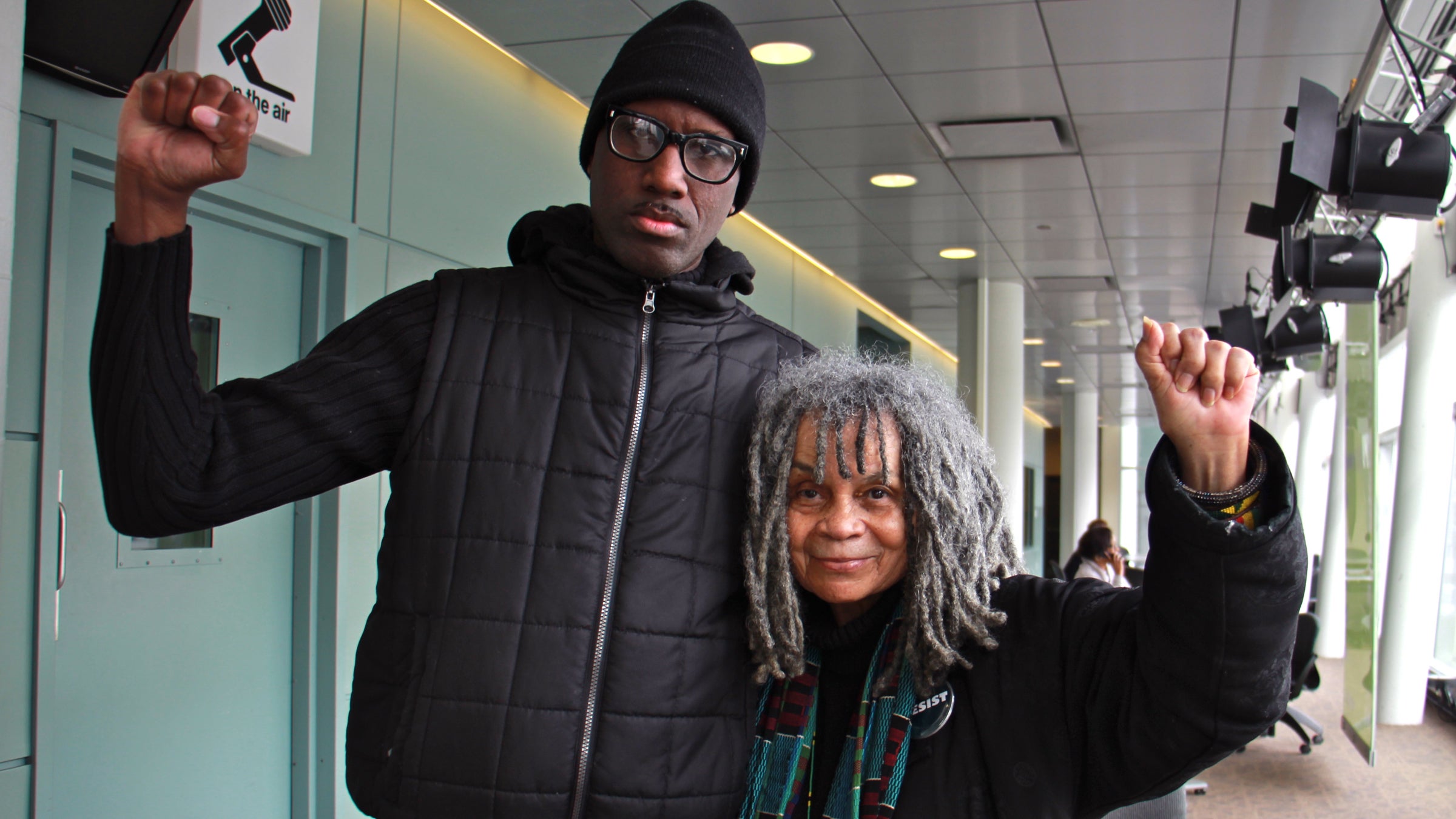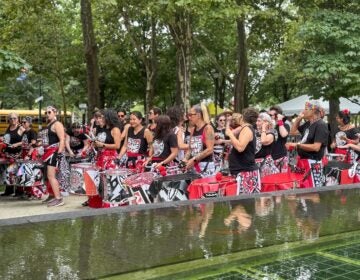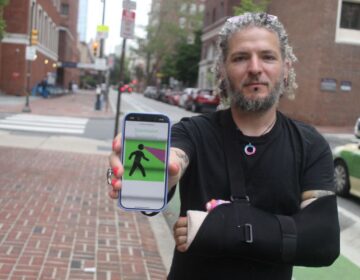‘Generations: Speak!’ brings activists together to confront racism
Listen
Black Lives Matter activist Asa Khalif and poet Sonia Sanchez. (Emma Lee/WHYY)
The African American Museum in Philadelphia will host “Generations: Speak!” Thursday, featuring a panel of those who were part of the civil rights movement along with members of current social justice movements such as Black Lives Matter.
Their common focus will be battling “the rise of racism.”
Panelist Sonia Sanchez, a renowned poet who has published more than two dozen books since 1969, said she sees the event as an opportunity for a generational exchange of ideas as well as sharing an understanding that the current fight has gone on for years.
“I think every generation needs to understand that some of what has happened has happened before and is not new,” said Sanchez, 82. “The racism is not new. The depression is not new.
“Someone asked me when all the killings were happening with the police. I said that we’ve seen it before and the problems is in how we reacted,” she added.
Black Lives Matter, while not having a single central leader, has become pivotal in protesting social injustice and police brutality.
Asa Khalif, the head of Black Lives Matter Philadelphia, said he has been a social activist since he was 13.
“This is a generational pain that we’re facing,” said Khalif, 32. “The Black Lives Matter movement is the name and the face today, but Black Lives Matter has always been a movement, even from when our ancestors and our elders were slaves on the plantation.
“There’s always been a movement to make circumstances and surroundings better for black and brown people,” he said. “This is nothing new.”
Black Lives Matter needs to be more active in the community and also find a more centralized agenda, said Khalif.
He sees reaching out to his elders as a means of helping make that happen.
“It’s so important as a national organizer in the Black Lives Matter movement that we reach out to our elders, that we listen to them,” Khalif said. “We’re not asking them to control the movement, but we can work together with our elders. In this decade of Trumpism, we can no longer afford, as black and brown people, to dismiss our elders.”
Confusion and misinformation about Black Lives Matter are often due to a lack of communication, he said.
“We have been divided,” he said. “We realize that will not allow bigots to stop us from having a conversation.
“That’s what the movement is about,” he added, addressing the common retort of “All Lives Matter” to the organization’s name. “It’s not about saying white lives don’t matter — white lives have always mattered in America — it’s our lives. We’re being shot down.”
Khalif’s cousin, Brandon Tate-Brown, was shot and killed by a Philadelphia police officer during a traffic stop on Dec. 15, 2014. Brown’s death sparked a renewed push to address policing in the city.
“If this doesn’t make you angry, if this doesn’t make you mobilze … We can no longer afford to sit and alienate each other,” he said. “And that justice will not come in a courtroom. We’re tired of being sick and tired.”
Sanchez grew emotional when talking about the current generation of activists and said that their willingness to risk their lives is a sign of respect to earlier movements.
“But it’s a joy for me to have seen these young brothers and sisters face what many of us faced, and that is danger and that is death,” Sanchez said, fighting back tears. “To see them move on and defy the establishment and say we’re here. I’m so proud of them.”
For more of Jennifer Lynn’s interview with Sonia Sanchez and Asa Khalif, press play at the top of the page.
WHYY is your source for fact-based, in-depth journalism and information. As a nonprofit organization, we rely on financial support from readers like you. Please give today.





